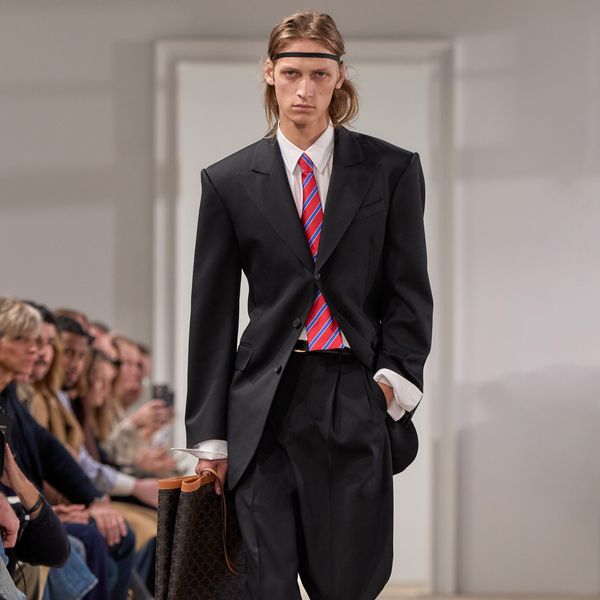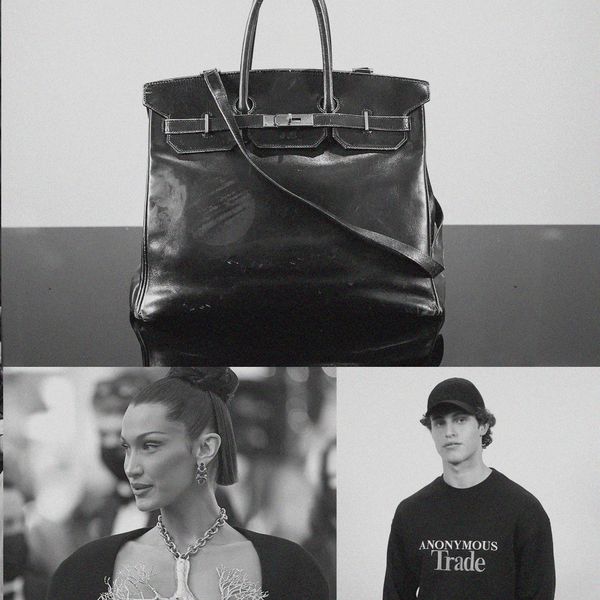Everything You See On Your Feed Is a Lie—Even Instagram’s Favorite Illustrator Agrees
Julie Houts will make you think “this is literally me!”
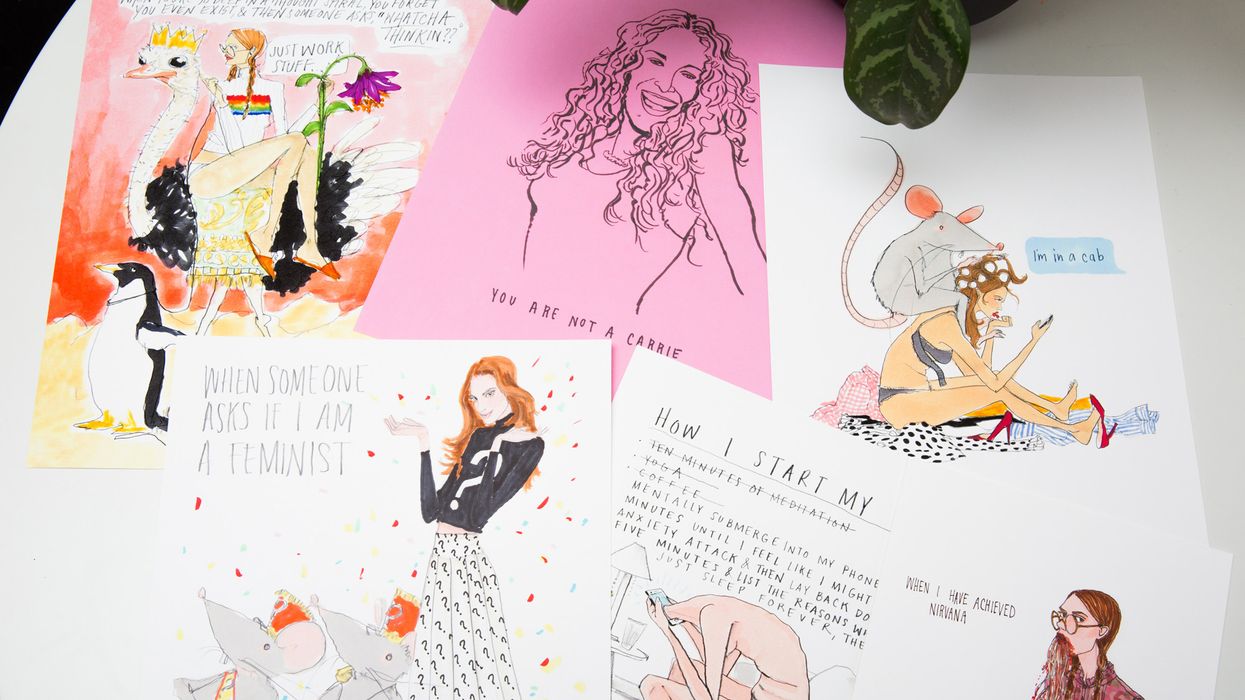
I often fall asleep (well, actually, lie awake while trying to fall asleep) with the bright light from my iPhone hitting my face. I tell my boyfriend it helps me sleep, but in reality it just keeps me up, thinking about everything and anything in a panicked frenzy. I don’t know why I do it, but I also can’t stop. Suddenly he’s sleeping and I’m thinking of all the things I’m not doing and everything I don’t have.
Instagram has a way of doing that—making you think and feel like your life is not enough compared to everyone else’s, like you’re the only person lying awake at 1:23 AM having an existential crisis over a two-inch by two-inch photo with a three-word caption. It’s isolating and alienating and stress-inducing. And then sometimes I’ll come across something that has me thinking,“This is literally me!” and I’ll laugh.
Literally Me is a phrase popularized by millennials (see also: I’m dead, I cannot, *actually*) and it’s also the title of the first book by both fashion and Instagram’s favorite illustrator, Julie Houts. It’s often her illustrations on Instagram, of girls in stylish outfits having personal spirals about stepping out or oversleeping or falling into an Instagram black hole, that have me thinking, “This is literally me!” But ironically, I’m not the only one. Houts saw those two words so often in her comments she felt compelled to make the phrase the title of her book.
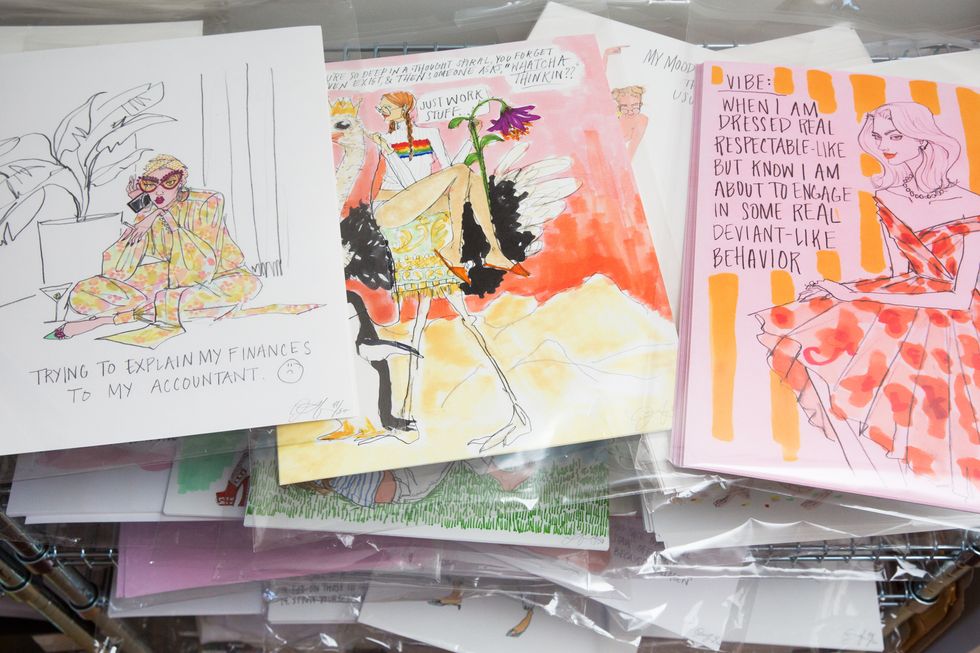
Back in 2011, when Houts first joined Instagram, she wasn’t thinking about likes or comments or followers; she wasn’t even thinking about anyone else. Houts saw it as a platform to post the art she was making on the side (for herself) while working as a women’s designer at J.Crew. Her friends and family started following along, and people from all corners of the world soon did, too—exactly how, she’s not quite sure, although her following has now amassed to 229,000 and counting, with a single illustration getting anywhere from 10,000 to 67,000 likes and thousands of comments.
Unknowingly and unintentionally, Houts has created the anti-Instagram spiral space by sharing her drawings that poke fun at everything from the fashion world to our insecurities to social media itself. But they all resonate so well because, unlike the perfectly posed #ootd, her drawings don’t point out what you don’t have, but what you do have—the same feelings, hang-ups, and thoughts as everyone else. “That’s the best thing in anything—in any art, in anything—is just to feel seen and understood,” Houts tells me while sitting on the couch in her perfectly clean Carroll Gardens apartment across from a table covered in perfectly glass-encased butterflies and beetles.
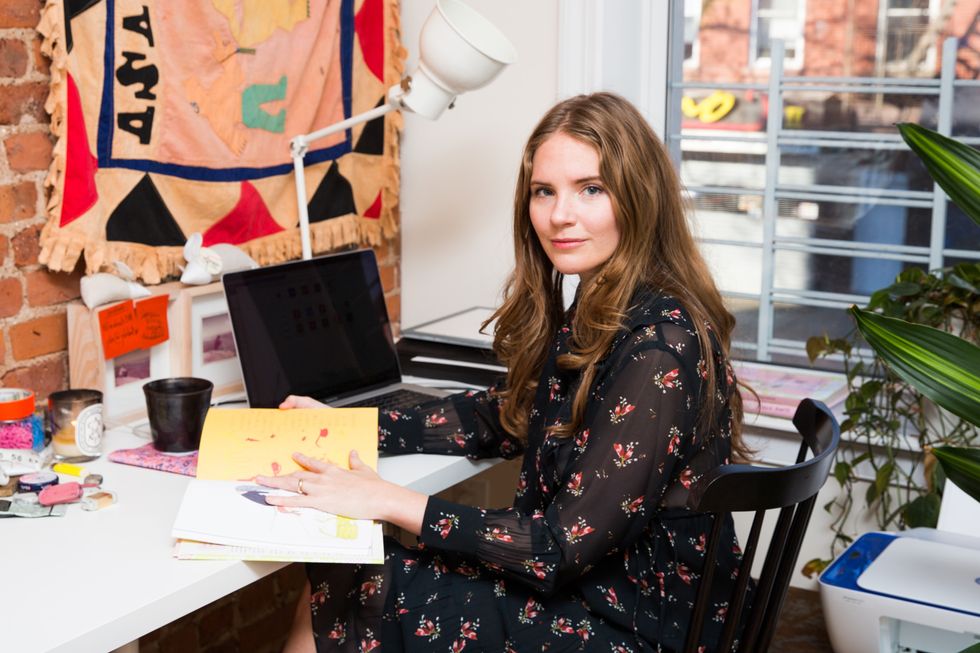
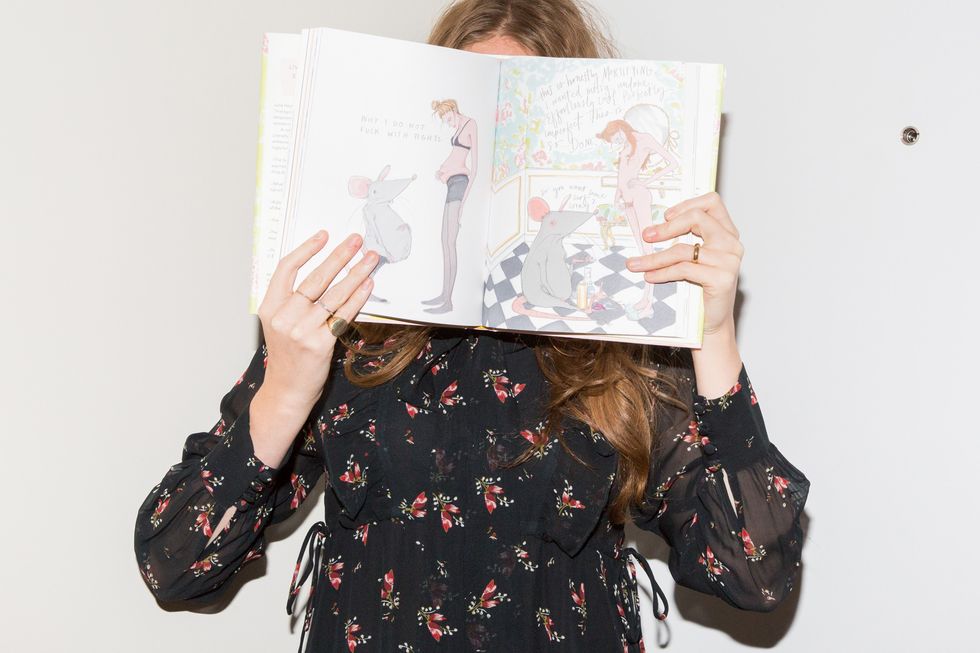
As our photographer takes photos and I talk to Houts about her career, we start discussing one of the illustrations in Literally Me, of a woman on a couch holding a cup of coffee with the following words alongside her: “Today on blog we’ll interview yet another gorgeous white woman in her gorgeous whitewashed space and look at all of her gorgeous white things and ask her questions about how she got her gorgeous white life and how it feels to be living such a gorgeous white life surrounded by her gorgeous white things.”
Houts shows me the page and puts down the book before sighing and saying, “This is so much of what I’m talking about! Just this projected sense of...this girl and her apartment with her things and look at her things! Isn’t she so interesting? It contributes to this sense of like, ‘You’re not OK—what you’re doing and what you’re up to is not OK.’” Before taking another sip of her coffee, she looks at the page and the mug and the camera and me, and laughs. “I mean even what we did here is very much contributing to that!” She puts down the cup. “This is bullshit, though, we know that, right?”
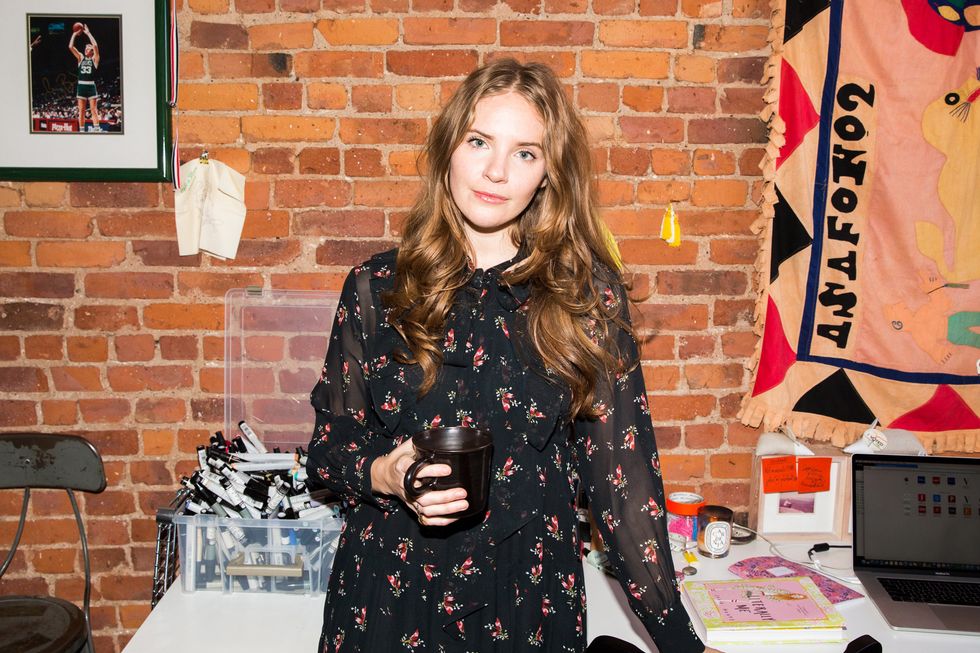
It’s that exact phrase and level of authenticity and transparency that makes everything Houts draws and writes so refreshing. She provides an escape from the escapism that we immerse ourselves in to feel better—only to end up feeling worse and left questioning our own self-worth. “I think that all of this just leads to people with pretty underdeveloped senses of themselves and their own kind of moral or ethical compasses. It just kind of makes people anxiety-ridden shell people who are constantly just glancing over their shoulder like, ‘Why does she have what I don’t have? How do I get it?’ That doesn’t foster connection between people.” Houts says this while holding her book, her own contribution to bookshelves and feeds and the conversations we have with others and ourselves. Houts is fostering the connections she doesn’t see, and everyday people on Instagram are taking note—and feeling a little bit better about how they feel and think.
The day after our interview, I’m lying in bed running through our conversation in my mind. I pull up her Instagram feed and click on a photo of a girl on the edge of her bed with her head sucked into her phone. The words next to her read: ‘How I start my day: mentally submerging into my phone for ten minutes until I feel like I might have an anxiety attack and then lay back down for five minutes and list the reasons why I can’t just sleep forever, then stand up.’ Even though I’m ending my day, I laugh because it’s “literally me.” I inevitably fall back into my old habit and continue to scroll through my feed of expensive outfits, beach vacations, and party Polaroids when my boyfriend looks over and sighs. I put the phone down and look back at him. “Yeah—this is bullshit, you know that, right?” And we laugh.
You can buy Literally Me by Julie Houts here, here, here, or at your local bookstore!
Want more stories like this?
This 24-Year-Old Artist Found Major Success by Giving Voice to Her Insecurities
I’m Proud of the Jobs I Didn’t Get and the Times I Cried in Public
The Biggest Trends of 2018 Are Actually Free

